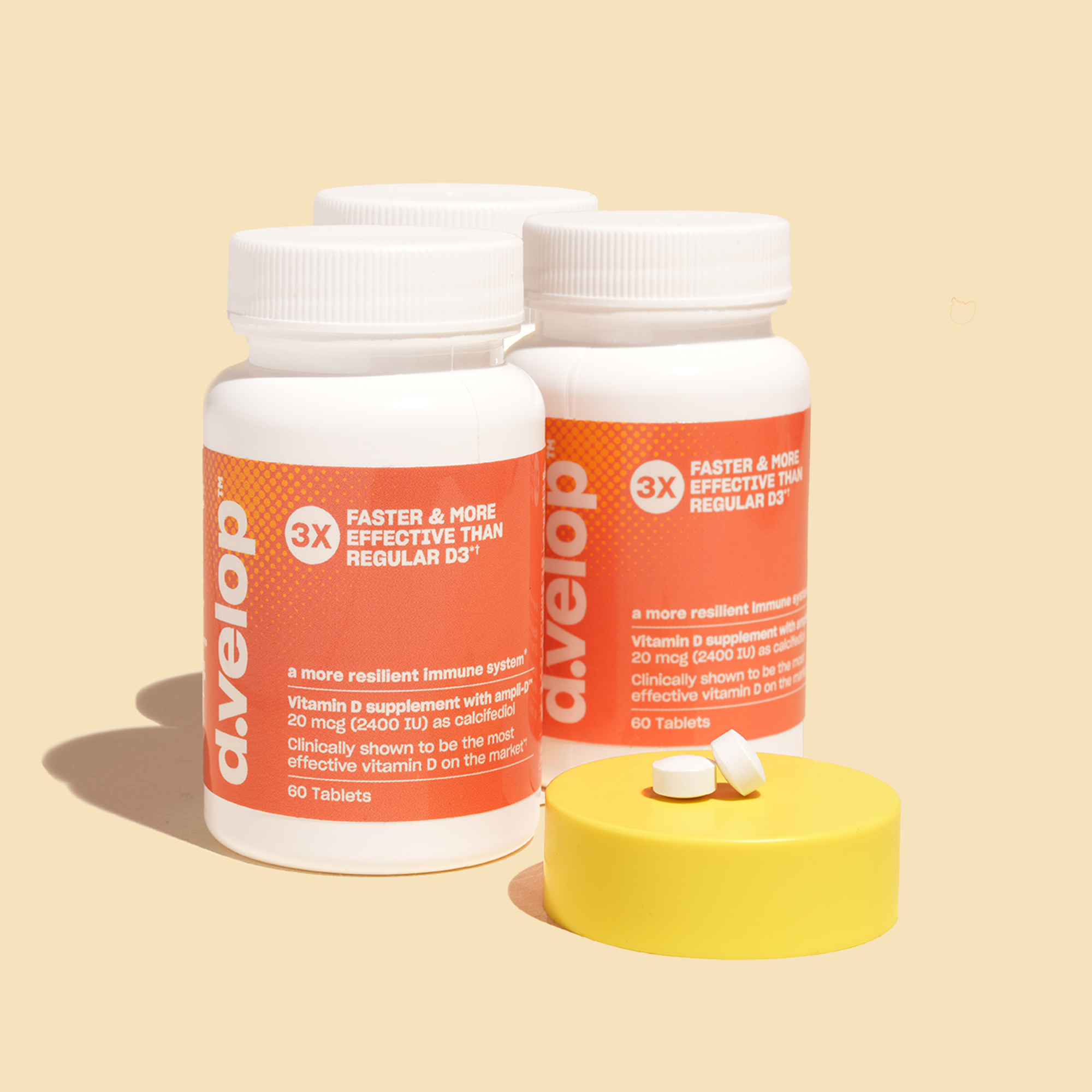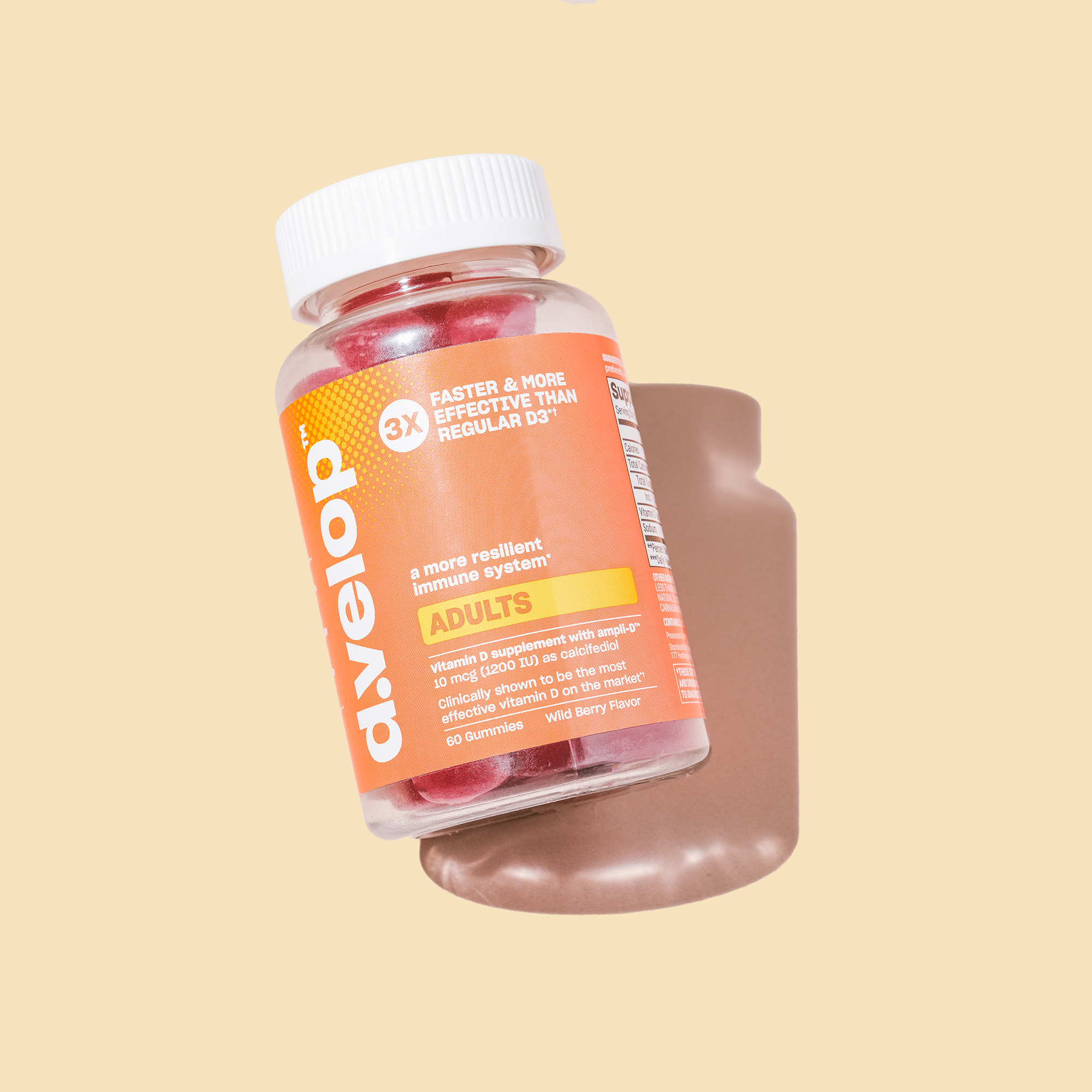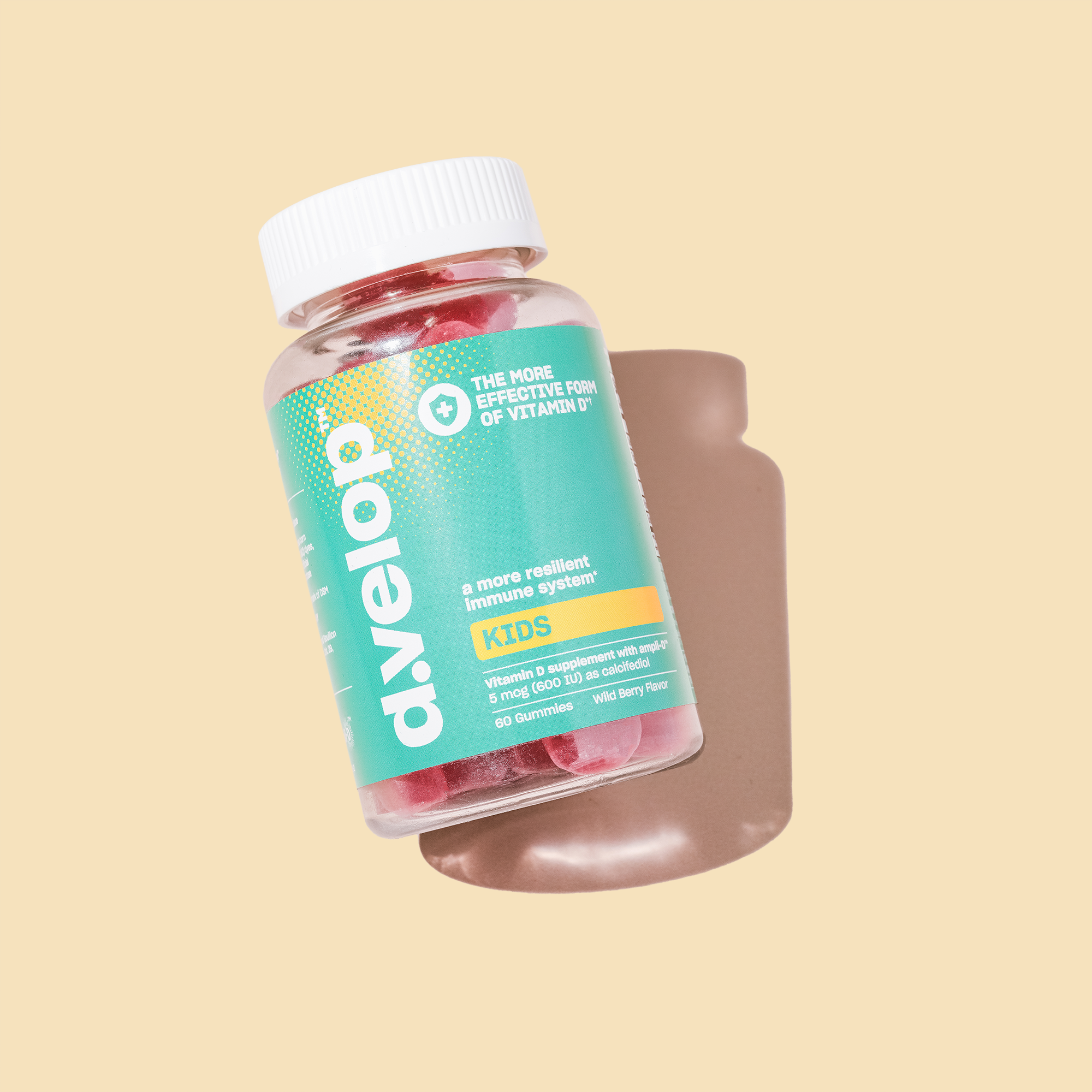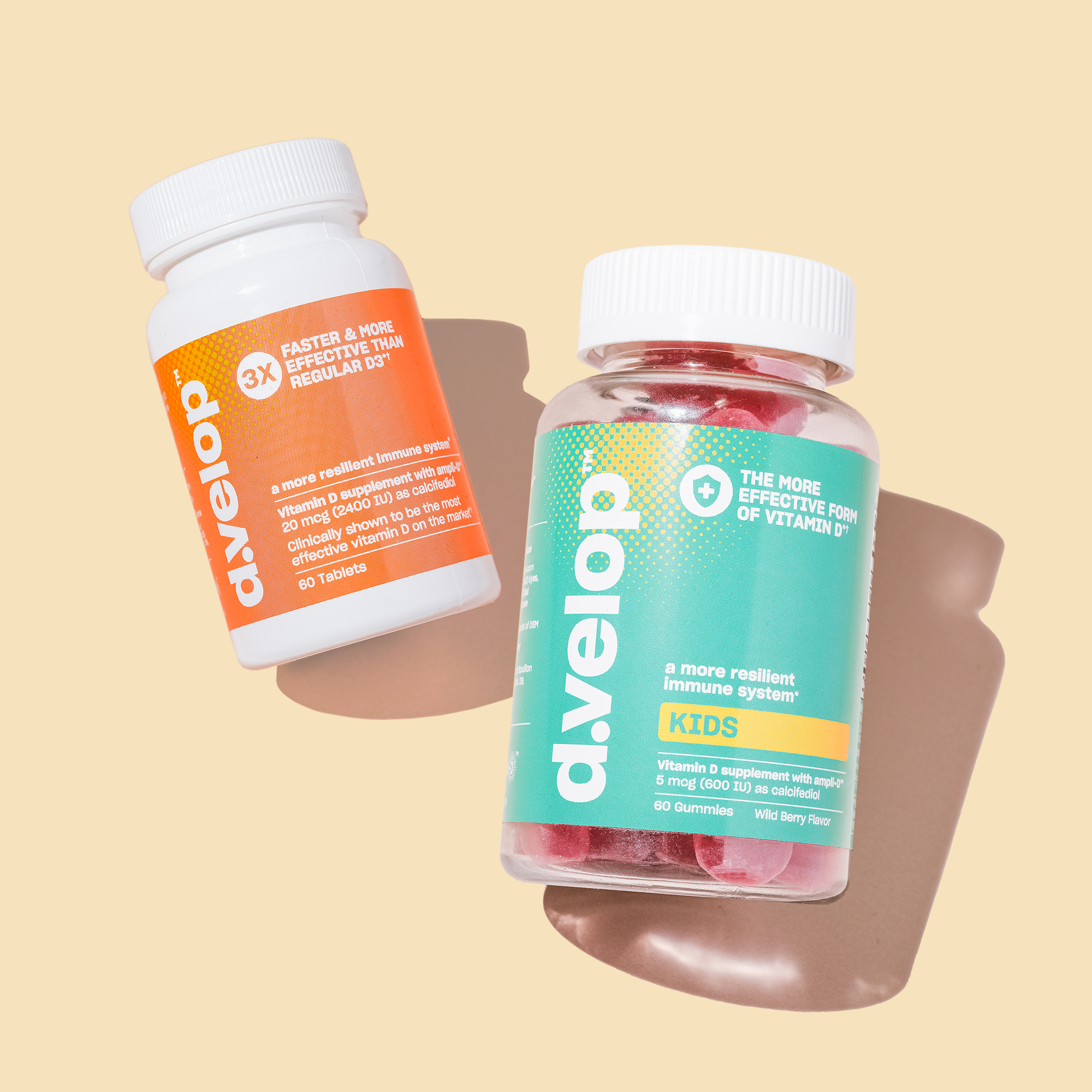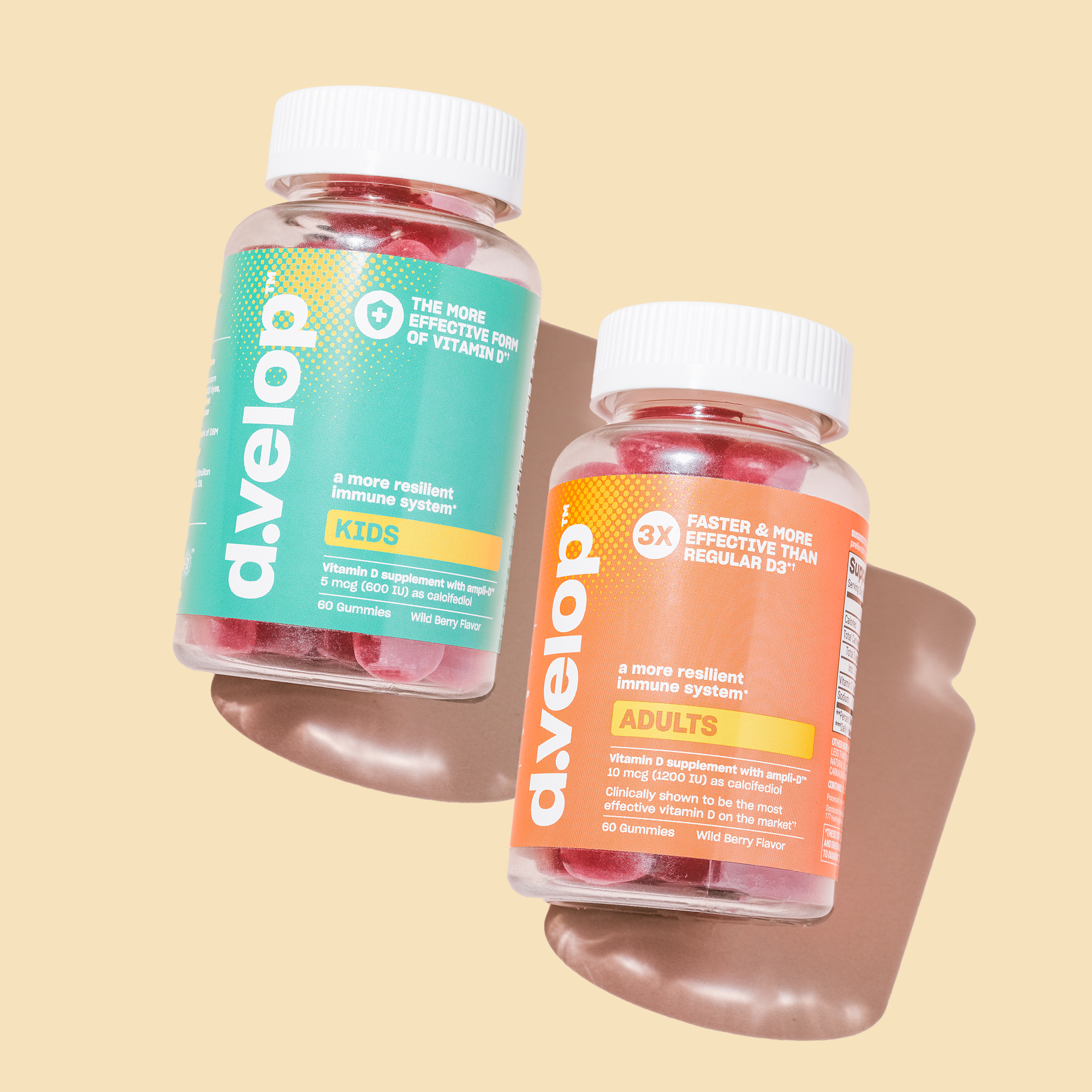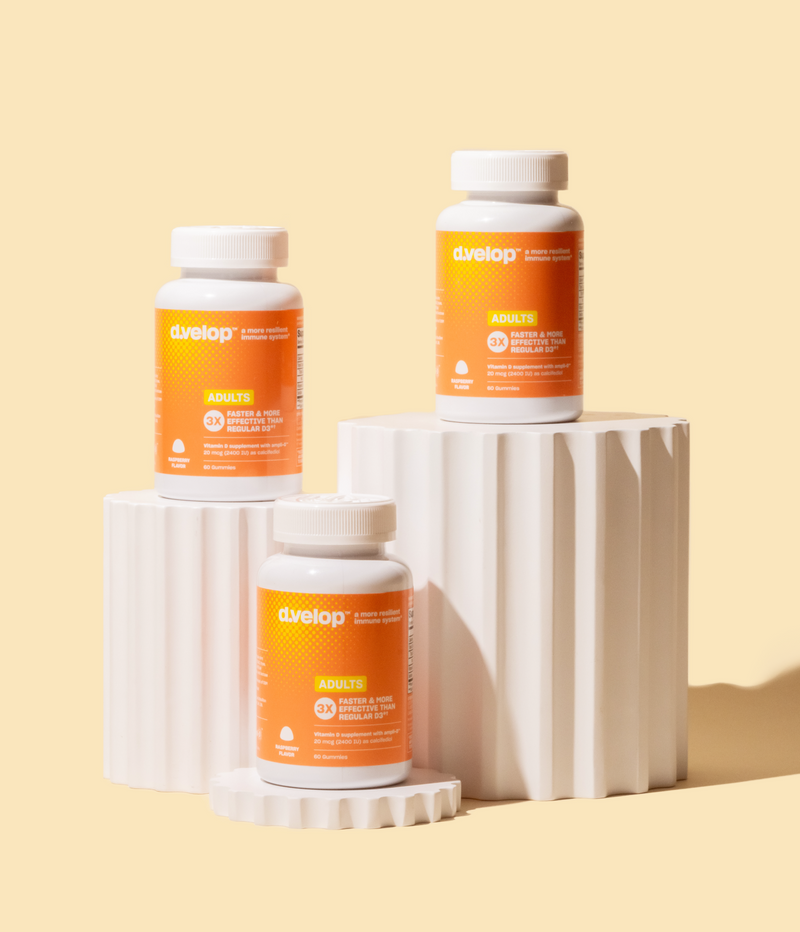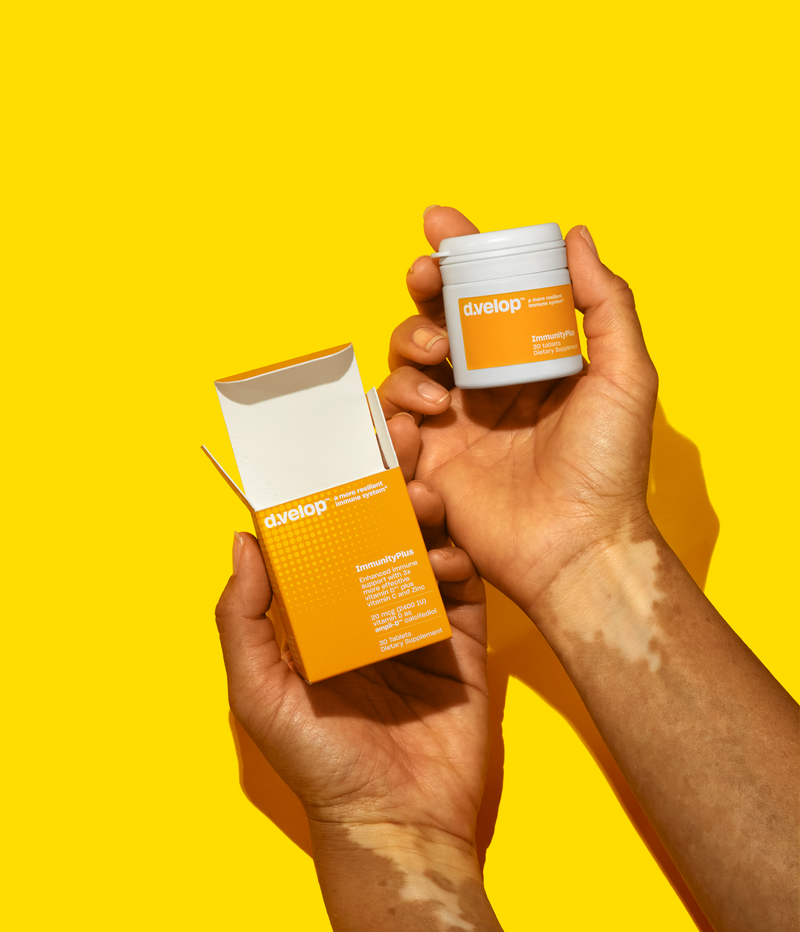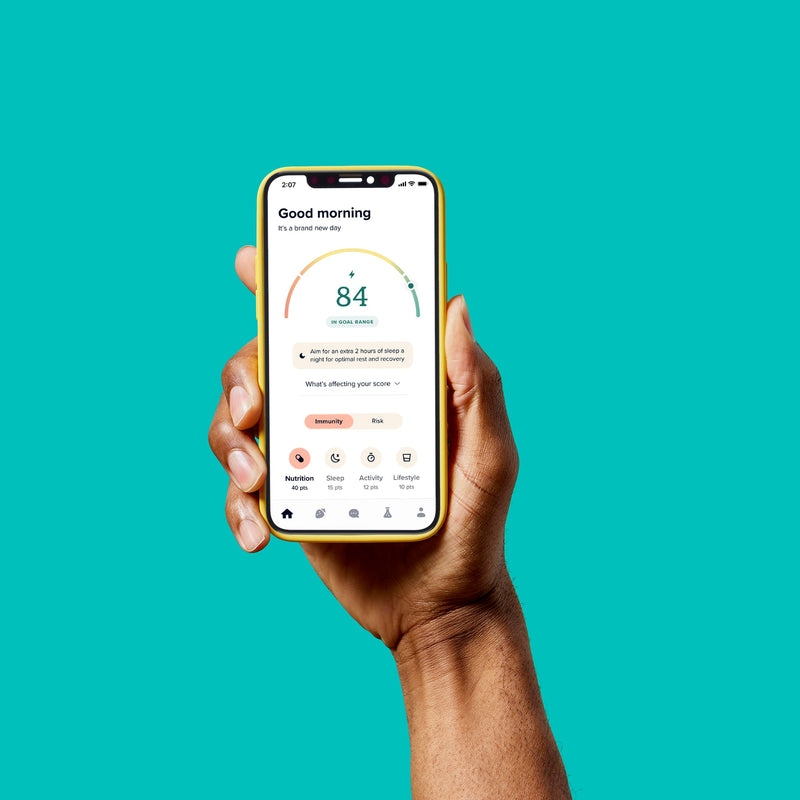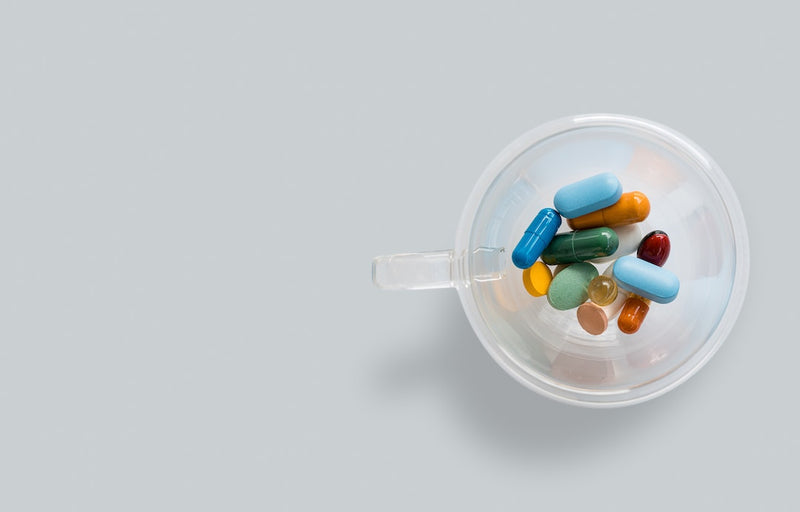Getting enough vitamin D is crucial to your body’s ability to function properly. Bone health, immune health, disease prevention, mood, and more— all need vitamin D to do their job! Because vitamin D is so important to various processes of the body, it’s important that you make an effort each day to get some vitamin D into your system. Enjoying the benefits of vitamin D starts with incorporating healthier habits into your lifestyle.
What are some Vitamin D Benefits?
There are countless benefits to getting enough vitamin D.
Let’s start with the science! Vitamin D is a fat soluble vitamin that helps with calcium regulation and absorption. Vitamin D triggers the body to use calcium for the growth and development of a healthy skeletal structure. Because it is fat soluble, it can be stored in fat tissue to be used later. This means that vitamin D will continue to help your body perform essential functions, either immediately, or down the line. This is why vitamin D has an enormous impact on bone health.
In addition to its role in bone health, Vitamin D is crucial in maintaining overall immune health and supporting our defenses against illness.* Vitamin D may also play a role in disease prevention, according to ongoing research. This benefit can be especially valuable when cold and flu season rolls around. Additionally, some studies suggest that vitamin D may be instrumental in artery health to ward off heart disease.
Another benefit of vitamin D involves mental and emotional health. Research suggests that there may be a relationship with low vitamin D levels and mood, but further randomized controlled trials are necessary.
Lastly, there is some evidence to suggest that vitamin D plays a role in muscle strength and function, however additional studies are required to finalize the research.
A lot of people don’t recognize that a lack of Vitamin D may negatively impact the body’s everyday core functions. And over time, deficiencies in vitamin D may add up, causing long term damage so it’s important to make sure your body is sufficient in the vitamin.
Vitamin D Deficiency
There are a lot of reasons someone may find his or herself falling below the recommended vitamin D levels. A lot of people who spend time in the sun find themselves surprised to hear that their vitamin D levels are low. It should be noted that even when you spend time outdoors, your body may not be absorbing sufficient sunlight due to excessive sunscreen use, having darker skin tones, or being in areas of high pollution.
Can you spot a vitamin D deficiency? A vitamin D deficiency may look different to each person, and it may not be obvious. Muscle weakness, bone or joint pain, depression, and fatigue are a few common indicators. While these symptoms are sometimes temporary, if a vitamin D deficiency is left unresolved, there may be serious consequences to your health. We recommend speaking with your doctor about your vitamin D levels. A good place to start would be getting a vitamin D test and having a medical professional assess your personal health situation.
Vitamin D deficiencies don’t always have symptoms to accompany them. The only way to determine your vitamin D level is to take a blood test. We offer a vitamin D test kit for those 18 years and older that allow you to check your vitamin D levels from the comfort of your own home. We also offer a vitamin D deficiency quiz that you can take to learn more about your lifestyle.
Our Registered Dietitians, your doctor, or healthcare provider can help you understand the results of your vitamin D test. The d.velop™ app has Registered Dietitians available at your fingertips to help you interpret the results.
How to Increase Your Vitamin D Levels
Increasing your vitamin D levels may sound like a difficult task, but there are several immediate ways to do so.
For starters, although there are a limited number of foods that are naturally high in vitamin D, such as fatty fish like salmon, tuna, or mackerel, cheese, and egg yolks, many foods in the U.S. are vitamin D fortified (meaning they have vitamin D specifically added in). These vitamin D fortified foods can include: breakfast cereals, some orange juices, and yogurt.
Another great way to boost your vitamin D levels is to spend time outside, safely! Your skin is capable of vitamin D production when exposed to the sun. When the sun hits your skin, the UV rays interact with the cholesterol in your skin cells which is then broken into cholecalciferol. Next up, your kidneys and liver work together to turn the stored vitamin D into an active form of vitamin D that your body can use. Your liver plays a role in the breakdown of vitamin D. d.velop™ vitamin D bypasses the need for the liver, since it is the active form found in the bloodstream.
Unfortunately, when winter rolls around it becomes much more difficult to get enough sunlight. If you’ve found this is the case for you, it may be worth considering a vitamin D supplement. Dosage for vitamin D is dependent on your age. d.velop™ has vitamin D gummies made specifically for children in addition to standard adult vitamin D products.
We always recommend speaking with your doctor before starting a dietary supplement to be sure it is appropriate for your health needs.
Enjoy the Vitamin D Benefits
There are countless benefits to having the right levels of vitamin D in your system. Start reaping those benefits today! See our vitamin D supplements for adults and vitamin D gummies for kids.
- Holick, M. F. 1996. Vitamin D and bone health. The Journal of nutrition, 126(suppl_4), 1159S-1164S.
- Holick MF. 2008. The vitamin D deficiency pandemic and consequences for nonskeletal health: mechanisms of action. Molecular aspects of medicine. 29(6):361-8.
- Jorde et al. 2008. Journal of internal medicine, 264(6), 599‐609
- Anglin et al. 2013. Vitamin D deficiency and depression in adults: systematic review and meta-analysis. British Journal of Psychiatry. 202(2):100-107.
- Bordelon et al. 2009. Recognition and management of vitamin D deficiency. American family physician, 80(8), 841-846.
